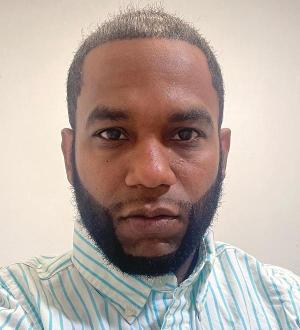Women in Antiquity
Course Info
Assignments
Content
Resources
Return to schedule of responses
Topic: The Bronze Age and its Homeric Echo
Due: Sun March 2
Prompt: What do this week’s primary source readings tell us about how stories of the Trojan War were understood and used by later generations?
The documents for this week are:
For your online response this week, write a post that includes the following:
- What passage or detail in particular jumped out at you as you read through it?
- What do you think the author was trying to communicate?
- In your opinion, what is this document telling us about the time and place it comes from?
- What about this document seems to relate to, support, or even contradict our other readings about this time and place?
- What would you like to find out more about?
Responses for Week 4
WeeK 4 "The Artifice of Penelope"
 Christopher Alvarado
1162
Christopher Alvarado
1162
2025-03-13 12:23:39
One of the most striking passages from Homer's "The Artifice of Penelope" that caught my attention was the clever scheme of Penelope weaving a burial shroud for Laertes, Odysseus's father. Every night, she secretly unraveled what she had done, thus prolonging the time of her project indefinitely to avoid the proposals of the persistent suitors who sought to take advantage of Odysseus's absence.Penelope's delaying her wedding by the constant activity of weaving, and, conversely, un-weaving is a powerful affirmation of her exceptional intelligence and strong temperament. Her actions demonstrate her resourcefulness and flexibility, which become all the more important in the light of the limited autonomy and powers granted women in ancient Greece. Her resourcefulness was both in furtherance of her own ambition and in the protection of her husband's property and upholding her family's social status in times of uncertainty. Her ingenuity served her individual goals as well as protected her husband's property and ensured her family's social status in times of turmoil.
Homer seems to be foregrounding the idea that women's power is a product of their brains, their patience, and their subtle resistance, as much as their brawn. The cunning tactics that Penelope adopts demonstrate that women in ancient Greece, far from being restricted by their society, were still very much in control of their lives, and in control of their fates, through an act of patience and cunning. Homer is drawing attention to intellectual strength and quiet resilience, contrasting this with the more traditional heroic paradigms of body strength and bravery more traditionally celebrated by ancient Greek society. This essay casts light on the social restrictions and assumptions placed on women in ancient Greece, demonstrating that, while women were generally assumed inferior in the social order, they were still able to exert themselves very efficiently in spite of this, within their own society. This is in line with other studies from this period, that point up the subtly played, but forcefully effective, calculative role played by women. I would be interested in knowing more about how widespread such tactics were among women in ancient Greece, specifically how often they utilized their brain and subtlety in order to resist societal pressure and impose their own individual will.
Week 4 Response
 Kujege Thiam
1113
Kujege Thiam
1113
2025-03-04 10:37:58
The “The Artifice of Penelope (from The Odyssey)” stuck out to me the most. I thought the manner with which Penelope stood her ground against her "suitors" was very clever. I also think her using her tapestry as a way to defend her town was very interesting, as tapestry and tapestry making are very feminine. I took this to mean she was being almost revered for her using her femininity to protect her. As opposed to assuming that the only way to protect anything is through more masculine means such as fighting or war. She was able to defend herself in a way that prioritized her femininity.
The Artifice of Penelope
 Andrea Palacio
1109
Andrea Palacio
1109
2025-03-03 13:08:25
While reading the article my initial thought and reaction was that they were pointing out that Penelope was somewhat sneaky and leading the men on in the story. After a few more re reads I realized that what Homer was actually tryin to do was show us how strong Penelope was and emphasize her cleverness. I believe my initial reaction had to do with the fact that in the previous articles we have read women are typically viewed as manipulative objects whom if you allow will bring you down. With Pandora although she had no idea what was in the box she was deemed evil and a menace to men. Which led to my initial thoughts on The Artifice of Penelope. I enjoyed that Homer actually idolized her fidelity and support of her husband which is why she had to use her cleverness to protect the sacredness of their marriage and their people. He viewed Penelope in a very positive light as opposed to the previous discussion of Pandora.
Artifice of Penelope Book 2_Response
 Veronica Castaneda
1104
Veronica Castaneda
1104
2025-03-02 22:50:22
Professor Wilson, my response on The artifice of Penelope
The passage that stood out to me was when the chieftain of Ithaca was away, suitors from all over the place started wooing Penelope, not only for her beauty but for her worthy posessions which includes inheriting the throne. So Telemachus assembled the men of Ithaca to informed them how agrieved he was at the loss of his father and seeing them trying to persuade his mother into marrying one of them. Telemachus was also disdained at thee prospect of losing his state if his mother decides to marry.
The author of this passage was trying to tell the audience how difficult it was for Telemachus and Penelope to make the right decision in a very precarious time when things at Ithaca were in turmoil at the fact that Odysseus sailed to fight in the Trojan war during the Bronze era. In my opinion Penelope was distraught at the fact of marrying someone she did not like and as a result angered the Gods.
“The Artifice of Penelope (from The Odyssey)”
 Emma Perez Sr
1103
Emma Perez Sr
1103
2025-03-02 22:38:13
The passage that stood out to me was “The Artifice of Penelope (from The Odyssey)”. I found Telemachus' speech beautiful because of how he strongly defended his parents and stood his ground against the aggravated suitors. Another thing that intrigued me, the suitors being so upset about a married woman’s hand and giving Telemachus an ultimatum over what to do about his mom. Reading this excerpt had me at the edge of my seat, constantly wishing there was more to learn about. I believe the author is trying to communicate Penelope’s different ways of loving Odyssey despite him being away by refusing to be courted by a suitor. I believe the author is trying to communicate how Penelope overcame situations .In my opinion, this document is telling us about a time where suitors would throw themselves at another man’s wife and try to persuade them, while the husband is away. Secondly this document is telling us about a place where men had a big influence, for example “Send your mother away, and bid her marry the man of her own and of her father’s choice’;” A place where a father’s decision determines his daughter’s hand and men making choices for a woman simply. This document differs from our other readings such as “Agamemnon’s Insult” where the storyline depicted pleading and praying to the gods for an outcome. In this passage, Penelope showed signs of being self-sufficient , for example not finishing and purposely undoing her needle work; she didn’t plead her way through her struggles. I would like to read more on Odysseus, Penelope, and Telemachus' early years as a family. Reading this passage made it abundantly the love they all had for each other especially with Odysseus being away, which was refreshing to read.
“Agamemnon’s Insult”
 Melvin Beltre
1096
Melvin Beltre
1096
2025-03-02 20:59:48
The reading of “ Agamemnon’s Insult” was a very interesting read. What stuck out to me I would say is Agamemnon's attitude towards a god Achilles even after stealing the priest's daughter and having his soldiers dying acts all mighty and power almost doesn't care refusing to give the daughter back to Apollo. I found this crazy and even myself felt a bit irritated with his actions but shows how confident he believes himself to be. The author probably in a way wanted to show the barberic side of warriors and how insolent they are no fear nor care. The document is probably showing us a period where humans and god had a shaky relationship on how maybe humans didn’t necessarily pray to them as much and lack respect towards them. I think this reading, if anything , supports some of the reading on how you shouldn’t mess with gods or belittle nor disrespect them, for you will suffer with God's wrath. For what I would like to know is why did Achilles hold back, doesn't he have the power to innahalate an army all by himself if the gods are as strong as stories say they shouldn’t have a problem.
Week 4: Identity, Recognition & Betrayal
 Dania German
1090
Dania German
1090
2025-03-02 18:43:56
Hello everyone,
Today I will be talking about “The Artifice of Penelope.” One compelling passage that caught my eye is when Odysseus, disguised as a beggar, meets his old nurse, Eurycleia. He did not want to be recognized but she recognizes him by the scar on his leg. This moment was really dramatic as Eurycleia is one of the first people to truly see Odysseus for who he is after years of struggle and disguises. I picked this passage because it’s a little bit different than our regular class discussions since it focuses on identity, betrayal, and recognition, something many people struggle with regardless of race. This text also emphasizes how in these times, a mere servant can be more involved than a parent.
In the text, Odysseus has spent much of his journey hiding or assuming false identities, but in this moment, his true self is revealed through a physical marker of his past. It represents that our past can come back to haunt us no matter how much we change our identity, physical markers also makes us unique. It also reinforces the loyalty of his old workers, contrasting with the disloyalty of the suitors and some of the other household members.
Odysseus encounters betrayal from the suitors who spend his riches and take over his house as well as from traitorous servants like Melanthius, who helps them, and certain maidservantes who sleep with the suitors in The Odyssey. Penelope weaves and unweave a funeral shroud to postpone selecting a suitor to remarry. She stays faithful by refusing to remarry, even though many believe Odysseus may be dead. Her loyalty is shown in her persistent hope that he will return.
This chapter exposes important facets of ancient Greek life, including the need of personal history and bodily marks as evidence of identification. In a world without records, proving a person's past relied much on scars and memories. It also depicts the close emotional ties in a household, where a servant such as Eurycleia could experience a mother attachment to Odysseus despite her inferior rank. She knew his scars and remembered him even though she was just his nurse. Bodily identifications is something that’s important today as well, as tattoos become more popular, photos have become important to identify people, this includes when traveling like getting a passport or to identify criminals.
This moment captures the Greek focus on fate and personal legacy when compared to other readings from the period. The notion that Odysseus's character is linked to an old wound from his youth reflects how Greek heroes sometimes bear traces of their past physically. It differs from other epic traditions in which a physical scar might not be as important as vocal evidence.
I would like to investigate how other ancient writings go about recognition situations like this. Is this particularly shown in The Odyssey, or do other heroes have similar flashes of insight through physical attributes? This reading made me interested about how people identified criminals back in the day, since photos weren’t a thing, did they keep records? Were jails popular? How did deal with people who committed crimes? This article rose many questions.
Individual Will vs Collective Pressure
 Jairo Diaz Rodriguez
1089
Jairo Diaz Rodriguez
1089
2025-03-02 18:37:34
The Artifice of Penelope resonated deeply, particularly her defiance of societal expectations and her unyielding integrity in the face of oppressive traditions. The central theme of resisting conformity, even in the face of pressure from entrenched power structures, reflects my own values of individualism and moral autonomy.
Similar to Penelope, I have a disdain for arbitrary power dynamics and a belief in integrity over conformity. I value staying true to one’s convictions, even when societal traditions, such as remarriage as a means of securing status, demand compromise. Her resilience in the face of isolation and manipulation emphasizes the rarity and necessity of holding fast to personal ethics in a world that often prioritizes expediency.
Telemachus’ evolution from a passive youth to a leader willing to confront the suitors also struck a chord. His impassioned speech, in which he condemns the suitors’ exploitation and demands accountability, reveals a boldness to challenge entrenched authority even when outnumbered. This reflects my own willingness to question flawed systems and defend boundaries, whether personal or ethical.
Both Penelope and Telemachus embody the tension between individual will and collective pressure. Penelope’s loyalty to Odysseus defies Ithaca’s expectation that she remarry, while Telemachus’ defiance of the suitors rejects their claim to entitlement. Their actions are rooted in self-trust, a quality I share. Like them, I prioritize inner conviction over external validation, accepting the risks of dissent.
week four
 Arlene Willock
1088
Arlene Willock
1088
2025-03-02 17:51:35
The detail that jumped out to me through the reading is how the relationship between men and women are different depend ending on which side of the marital table you are looking at it from the patriarchal side where the sons are value more because of the primary symbolic feature which society emphasize in both the lliad and odyssey and how women suffered disabilities under patriarchal code they are not considered inferior or incompetent in the Homeric epic.
The author was trying to communicate to us the reality behind the lliad, the patriarchal structures how women are portrayed as prizes and property. Explores the fall of the brone age the impact on later culture also describing the hierarchy of class, warrior and reduced trade, loss of writing because of the crumbling of civilization, talking about the climate in the arear and population declining.
In my opinion the document is telling us about the historical account about how their social, economic and cultural dynamics was at that time and the relationship between the civilizations Mycenaean had like religious, elaborate toms and warriors the role women played and recordkeeping like write language. This document seems to relate the collapse of civilization and the aftermath like social, political instability that help cause the collapse.
What I would like to find out more about is the impact the bronze age had on later Greek culture and what the political and social structures women role played in the future.
Week 4 Response: Shifting Gender Roles and Social Dynamics
 [Former classmate]
1087
[Former classmate]
1087
2025-03-02 17:19:05
Nausicaa and the Stranger from The Odyssey of Homer delivers insight into how later generations understood or utilized the Trojan War stories. Set in the aftermath of the war, the passage reflects how the cultural remembrance and value of the conflict shaped identity and social norms. Generally, Nausicaa's encounter with Odysseus stood out. It shared themes of hospitality, recognition, and women's roles, suggesting that stories of courage and honor from the Trojan War extended to the domain of domestic life. This also emphasizes how warfare influenced social relationships. Nausicaa represents bravery, support, and respect for the ethos of the warrior, the ideal woman within her society. This passage allows the story to resonate with audiences that value such themes.
With characters like Nausicaa, Homer emphasizes the resourceful qualities and merits of women, hinting at how the roles of women fluctuate in society over time. Male heroes often dominate the battlefield. Homer contraversly provides some recognition of how women were displayed to have crucial roles in society and the home during this point in history. This suggests evidence of evolving social dynamics. Nausicca and the Stranger tells us that this era reflected a society with perspectives of the heroic past and the practical realities of everyday life.
In comparing this to other readings from the period, there are moments of both support and contradiction. Many texts emphasize the ideal of male proficiency in warfare, while this narrative provides a counterpoint or rather Homer's tribute accentuating women's skills and competence. Regardless of the controversy among other sources, the significance and prominence of Homer's work serve as a celebration of heroism and a review of the societal values and the human experience with the era in time.
I want to explore the implications of gender roles in Homeric literature for a comprehensive and better-informed understanding. I'm also curious to know how gender roles evolved in the historical periods following the creation of the Odyssey. Another interest would be learning additional interplay between male and female narratives in epic literature (as we have done similarly in the Women's Antiquity course), deepening our understanding of their societal contexts and cultural values, and determining what is most essential for us to take away from those previous narratives.
Response #3 week 4
 Yeili Lainez
1086
Yeili Lainez
1086
2025-03-02 09:40:49
I choose the reading “Nausicaa and the Stranger” and the quote “I am afraid of the gossip and scandal that may be set on foot against me later on” I found this quote intriguing. Gossiping and shame have always been a topic in the history of women. Since the Greek Mythology women had experiences with oppression in society. When Nausicca was helping Odysseus to get back to his own country, he needed the help from Nausicca’s fathers but she refused to walk into town with him or be seen together, because of the judgement that will bring her. Phaeacian people would think Nausicca has been unloyal to their own men who are trying to marry her. Also it would bring shame that she would bring into her family.
I believe Nausicaa was a smart women that protected her morality and reputation. In the reading “Homer: The Artifice of Penelope” Penelope’s character is represented as smart and clever who refused to re-marry any of the suitors. She instead tricked them and made them wait four years. The view of women in the stories shifted. Now women are taking important roles where they have to make their own decisions. Their characters are seen less as objects and more as individuals.
Reading Response #3 Naussica and the Stranger
 Brenda Rodriguez Aguilar
1077
Brenda Rodriguez Aguilar
1077
2025-02-27 20:23:01
The Reading that was the most interesting for me was “Nausicaa and the Stranger” and the quote that stood up for me was “if you can gain her over, you may hope to see your own country again, no matter how distant it may be” because it explained the importance of the opinion of the woman towards regin the town. Comparing the reading “The Artifice of Penelope” and “Nausicaa and the Stranger” they both portray women as wise, trustworthy and able to reign in absence of their husbands. The role of the woman compared to other readings where the woman was more privately spoken and these 2 readings appear to also be public to speak and make decisions. I really enjoyed this new perspective towards women and how clever and intelligent they were portrayed in both readings.
I think expanded the role of the women compared to the other readings where only Goddesses were more valuable or important in a man's world but the similarities are they still have limitations and responsibilities attached to their gender. Nausicaa was in charge of protecting her virtude and reputation, as well as Penelope was in charge of re-marry in order to have a new reign for the community as it wasn't enough herself to do this job even though when Oddisey left let her in charge of it as trusting her to be able to do it. I feel the author due to the time was able to put a turning point between the bronze age and after the Iron Age, maybe recognizing some mistakes in the bronze Age and making some changes of the views of women.
I’m hoping to see more perspectives of women in different times and communities.
Response for Week 4
 Francisco Baez
1075
Francisco Baez
1075
2025-02-27 11:18:48
Agamemnon's flagrant disdain for the priest's entreaty and his determination to retain Chryses' daughter in spite of heavenly repercussions were two particularly noteworthy passages. His assertion that "I would far rather keep her at home" demonstrates his view of women as nothing more than objects that can be swapped out and are only appreciated for their physical characteristics. Because it highlights the historical battle of women being treated more like property than like sentient beings, this aspect is especially relevant during Women's Week. Themes of injustice, pride, and power are all present in Homer's story. The author depicts the power disparity between leaders and people with less clout by showing how Agamemnon's conceit and entitlement result in divine vengeance. With his ferocious opposition to injustice and his awareness of the unequal treatment of both women and warriors, Achilles serves as a counterbalance to Agamemnon, as the verse also emphasizes.
The ideals and social systems of ancient Greece, where women were frequently viewed as war booty and had limited liberty, are reflected in this paper. Agamemnon's words and deeds demonstrate how women were traded as political instruments in order to hold onto power and authority. The portrayal of Briseis and Chryses' daughter serves to further emphasize women's subordinate position, where males in positions of authority dictated their destiny rather than them. This work conforms to the patriarchal standards prevalent in ancient literature when compared to other readings from the same era. It does, however, stand in contrast to some later works that examine more nuanced female characters. One example are the plays of Euripides, in which women's viewpoints and perspectives are given greater weight. This paradox points to a slow change in the way women's roles were viewed in literature over time.
The influence of divine intervention plays on gender dynamics is one topic I would want to investigate further. Men possessed societal power, but the gods, some of whom were female, had a degree of influence that might subvert mortal authority, as demonstrated by Athena's intervention in Achilles' wrath. A more thorough understanding of how women’s place in ancient culture may be gained by analyzing the ways in which female gods and god-like beings influenced gender roles in Greek literature.
The Artifice of Penelope
 Nalu Cabrera
1052
Nalu Cabrera
1052
2025-02-23 12:48:08
Hello Professor and Classmates,
A paragraph that stood out to me in this article was the following, “The first of these is the loss of my excellent father, who was chief among all you here present, and was like a father to every one of you; the second is much more serious, and ere long will be the utter ruin of my estate. The sons of all the chief men among you are pestering my mother to marry them against her will. They are afraid to go to her father Icarius, asking him to choose the one he likes best, and to provide marriage gifts for his daughter, but day by day they keep hanging about my father’s house, sacrificing our oxen, sheep, and fat goats for their banquets, and never giving so much as a thought to the quantity of wine they drink. No estate can stand such recklessness; we have now no Odysseus to ward off harm from our doors, and I cannot hold my own against them. I shall never all my days be as good a man as he was, still I would indeed defend myself if I had power to do so, for I cannot stand such treatment any longer; my house is being disgraced and ruined.''
This part of the story shows Penelope and Odysseus son, Telemachus, who is angry at the things he has been seeing suitors do because of his father's absence. Telemachus continues setting up a meeting to speak out to the suitors in their town, deciding to stand his ground and stand up on the disrespect and their bad behavior towards his father. He does this to protect his mother from the suitors trying to marry her and take over her husband. The suitors have noticed his father hasn't been around for a while and they want to get Telemachus mother to marry one of them because they believe Odysseus will not be back and she has to be with someone. This believe gets him angry, which he thinks isn't true and he decides to search for his father though he had a meeting with them hoping for change, which didn't happen because clearly they didn't care enough. This shows Telemachus as a leader because he is stepping up and making sure that his family are all okay and safe from these people who just want to come and take over his father.
I believe the author was trying to show how no matter what happens in these worlds, there is loyalty and people who decide to stand up for what they believe in no matter who disagrees. He is also trying to show the change of having the son of one the kings start changing from childhood into adulthood, taking responsibility and taking leadership for his family, as the king would for the safety of his family. This is very vital because it shows a change and a different step and a different view of one of the sons. This document shows the world of kings and their families and how they valued these people and these things in their life, it's what makes them, them. They also believed their families needed to be protected at all times. These texts support other articles and themes we discussed before of Ancient Greece where honor, family and leadership is highly valued characteristics they need to have. Something I am intrigued in knowing and finding out is if Telemachus ends up taking over their town because Odysseus doesn't ever come back, where did Odysseus go?
Responses for Week 4
 Jenisis Ayala
1049
Jenisis Ayala
1049
2025-02-23 12:02:44
While reading "The Iliad" and "The Odyssey," the one thing that stood out to me was Agamemnon’s treatment of Achilles in "Agamemnon’s Insult.". The power struggle between these two individuals demonstrates how the Greek leaders' strict hierarchy and fragile egos led to the military society placing a great value on honor and rank. The issue of pride (hubris) that goes beyond personal conflict and has repercussions in Greek culture appears to be portrayed by Homer.
Similarly, in the novel Nausicaa and the Stranger, I was impressed with Nausicaa’s poise and hospitality toward Odysseus. This passage portrays guest-friendship as an important feature of Greek culture. Homer presents her as an excellent example of proper behavior and contrasts this with the savagery seen in The Iliad. This suggests that Greek civilization is rigidly divided into warrior strength and social customs, depending on circumstances.
The Artifice of Penelope is effective because it demonstrates Penelope's independence and intelligence in a patriarchal society. By creating and unraveling Laertes’ shroud she can stop a future marriage, as she both laments and resists the re-marriage. This shows a blatant contradiction to the beliefs that state that women in ancient Greece are mainly passive figures who are unable to take action against re-marriage.
These texts reinforce many topics we have encountered in other readings about ancient Greece, especially the importance of honor, hospitality, and cunning. However, these texts also lead to a complex view of gender roles, as Penelope’s wit stands against the often male-dominated narratives of war and conquest.
One thing that I would like to discuss in more detail is the societal ideas of what are considered real-world expectations of women within a society presented in the Homeric epics - how much social freedom and power women actually have compared to the ideals that are described for them in the epics? This will then extend to the xenia doctrines which played a role in the interactions that Greeks had in historical areas.
RE: Responses for Week 4
 Brenda Rodriguez Aguilar
1078
Brenda Rodriguez Aguilar
1078
2025-02-27 20:30:00
Hi Jenesis,
As you mentioned about the gender roles in this readings we could experience a new point of view towards women being more public towards important roles rather than in the past were view more in the private area. I also found very interesting that even the titles were dedicated to women leading the stories and making history when usually it is men the heros or savers. I found very interesting in the cleverness of both main characters Nausicaa and Penelope which were portrayed as intelligent, leaders and loyal.